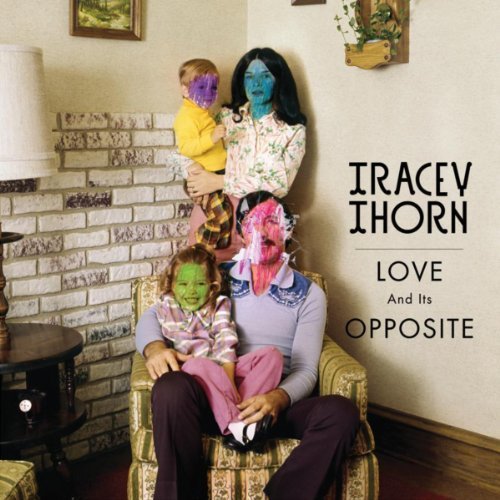
Tracey Thorn
Love And Its Opposite
Release Date: May 18, 2010
Genre(s): Rock, Alternative
Record label: Merge
Music Critic Score
How the Music Critic Score works
Buy Love And Its Opposite from Amazon
Album Review: Love And Its Opposite by Tracey Thorn
Very Good, Based on 8 Critics
Based on rating 4/5
If Tracey Thorn's last solo album, 2007's Out of the Woods, saw her stepping out on the dancefloor, its follow-up finds her nestled on the sofa, watching daytime soap operas and devouring chick-lit. Her lyrics leave no romantic cliche unexplored, travelling from commitment issues (Long White Dress) to marital breakdown (Oh! the Divorces), via the tragedy of dating again (Singles Bar), the horror of realising that your teenager wears your frocks better than you do (Hormones), and the recurring stagnation of long-term relationships (Swimming). The music, too, is the stuff of romcom soundtracks: acoustic in mood, gently pulsing, shot with silvery strings, occasionally stumbling into schmaltz.
Based on rating 8/10
After the eight-year recording silence which lasted from the start of Everything But the Girl's indefinite hiatus until Tracey Thorn's triumphant re-emergence as a solo artist on 2007's Out of the Woods, the singer took only three years to return with a follow-up. Love and Its Opposite finds Thorn again working with Berlin-based house producer Ewan Pearson, but it effectively jettisons its predecessor's scintillating electro-pop for a more subdued chamber-folk style akin to that album's quieter moments; it's easily Thorn's least electronic work since EBtG's dramatic danceward shift in the mid-'90s. Then as now, the change of musical scenery hardly disrupts the caliber and sophistication of Thorn's songcraft or the power of her inimitable voice, which remains as gloriously warm as ever.
Based on rating 7/10
“Now there’s kids to tell, and legal bills, and custody, and oh, the divorces!” In a world of pop music seemingly preoccupied with all things youthful, it’s incredibly striking to hear lyrics such as these, from the opening track of Tracey Thorn’s new album, Love and Its Opposite. It’s refreshing to hear a lyricist describe an area of life so often neglected in music - and so candidly too. The song in question, Oh, the Divorces!, is an extremely frank meditation on the fragility of relationships and the thoughts that invade your waking hours when close friends separate.
Based on rating 6.9/10
If you've known Tracey Thorn over the last 20-odd years, you've known her as the maven, if not matriarch, of love-lorn electronic music. With Everything But the Girl, it seemed like her every long-held note wore away the ideal of the stable relationship-- ironic considering that Thorn ended up marrying her co-collaborator Ben Watt. Considering that she and Watt are on a presumably happy course, what with the marriage and the kids and all, Love and Its Opposite seems a unusual effort.
Based on rating 3.0/5
Tracey Thorn could re-record Earth, Wind & Fire’s disco apex I Am and still make it sound cripplingly sad. She is blessed—or saddled—with some of the most believably melancholic vocal cords that ever inspired throngs to shake loose on the dance floor. Her voice emerges from the deepest recesses of her throat and emerges sounding as though it’s been filtered through every sob she ever choked back in her life, seeming not so much raw with pain but purified by regrets.
Based on rating 6/10
Years ago someone told me Tracey Thorn reminded them of Chet Baker. That may sound strange, but when you think about it, the comparison makes sense. Thorn and Baker both derive their power from subtlety. They have a languid, effortlessly cool vibe to them that sometimes comes across as detached, but more often feels deeply personal.
Opinion: Excellent
Back-to-basics production allows Thorn’s inimitable vocals to shine. Wendy Roby 2010 The quote accompanying Love and Its Opposite is mildly terrifying. “When I was young, I imagined middle age to be a kind of comfort zone,” says Thorn, “but in fact, having got here, I feel it's more of a war zone. The songs are where I dump all that s*** so that I can get on with my life without jumping off a bridge.” And though this hardly qualifies as an inducement to listen, there’s something delightfully honest about it.
Opinion: Excellent
Bettye LaVette Bettye LaVette fights familiarity on “Interpretations: The British Rock Songbook” (Anti). Ms. LaVette, 64, now rivals Aretha Franklin as her generation’s most vital soul singer. She uses every scrape, shout and break in her raspy voice, with a predator’s sense of timing, to ….
'Love And Its Opposite'
is available now

